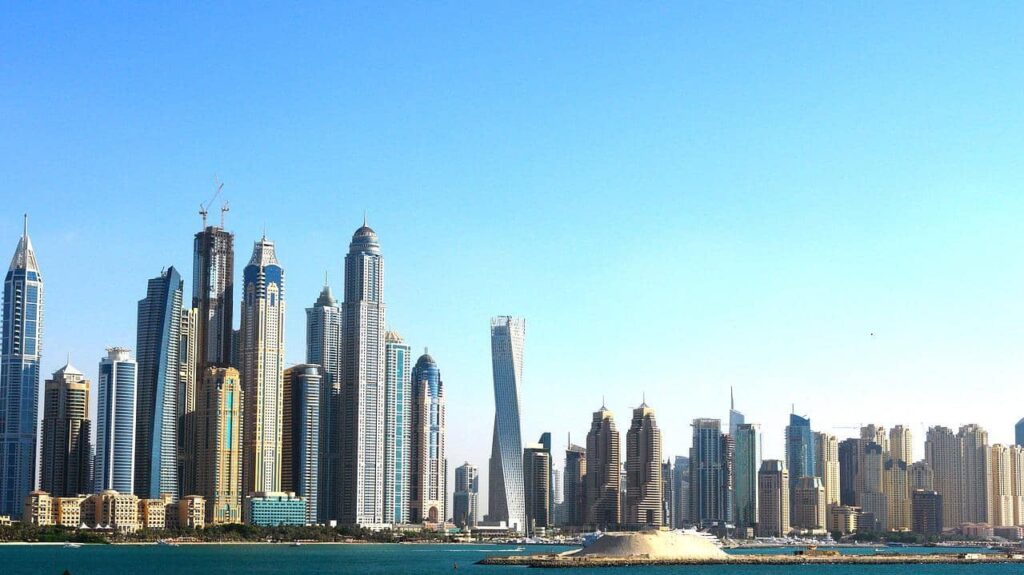Between January and May 2022, Dubai had apartment and villa transactions totaling Dh61.9 billion, according to a report released on Monday, demonstrating how the real estate industry has performed well even as global economies battle to combat inflation amid tightening markets.
Residential property in the emirate is anticipated to remain a great hedge against inflation, according to a senior official at Knight Frank, with house price rise expected to hover around 5-7 percent in mainstream markets and 12-15 percent in top markets.
“There are many reasons for cautious optimism when it comes to containing inflation in the UAE. The government’s extremely diversified imports strategy, steps to boost food security in recent years, and the strength of the US dollar, which is curtailing imported inflation, are all huge positives,” said Faisal Durrani, Partner – Head of Middle East Research.
The government’s preemptive move to freeze the prices of 11,000 basic products, including milk, bread, meat, and chicken, is by far the most effective measure. The spike in crude oil prices, he noted, has supported the policy, which will ensure a strong recovery in economic development.
Knight Frank, using Oxford Economics statistics, predicts a rebound in Abu Dhabi’s GDP growth this year from around 0.5 percent to a little over 6%. Dubai’s GDP is forecast to rise at a similar rate as last year, boosted by a wider resumption of global travel and the emirate’s attractiveness as a global vacation destination.
Business confidence
The recent PMI score for the UAE’s all-important non-oil sector held constant at a 12-month high in April as orders continued to grow, indicating that the economy’s relative optimism is filtering through to corporate activity levels.
“The April PMI readings indicate that businesses are clearly nervous about rising cost pressures. Two immediate pressure release valves are a reduction in the pace of new hires and passing on costs to consumers. The latter is often seen as a last resort and we’re not seeing that yet,” Durrani said.
The residential market remains relatively insulated
Ashley Bayliss, Partner – Head of Mortgage and Debt Advisory, Knight Frank, said: “The UAE’s fiscal policy correlates with the US, and the recent 50 basis point hike in interest rates to 2.25 percent does mean higher outgoings for mortgaged households going forward. However, it remains comparable with other international prime markets.”
Mortgaged buyers for villas and apartments account for only 18% of Dubai’s residential market by value, according to Knight Frank. Last year, close to 40% of deals were funded, while just over 50% of transactions were financed in 2007.
“While this appears to be a decrease in residential mortgage lending, as at the end of May there has been almost Dh38 billion of financing extended across all real estate asset classes. Extrapolating the number of transactions, we have seen so far this year, 2022 could be on course to see the second-highest level of mortgaged deals in the last five years for the whole real estate market. The main challenge is for banks to keep pace with the current growth of the market,” explained Bayliss.
